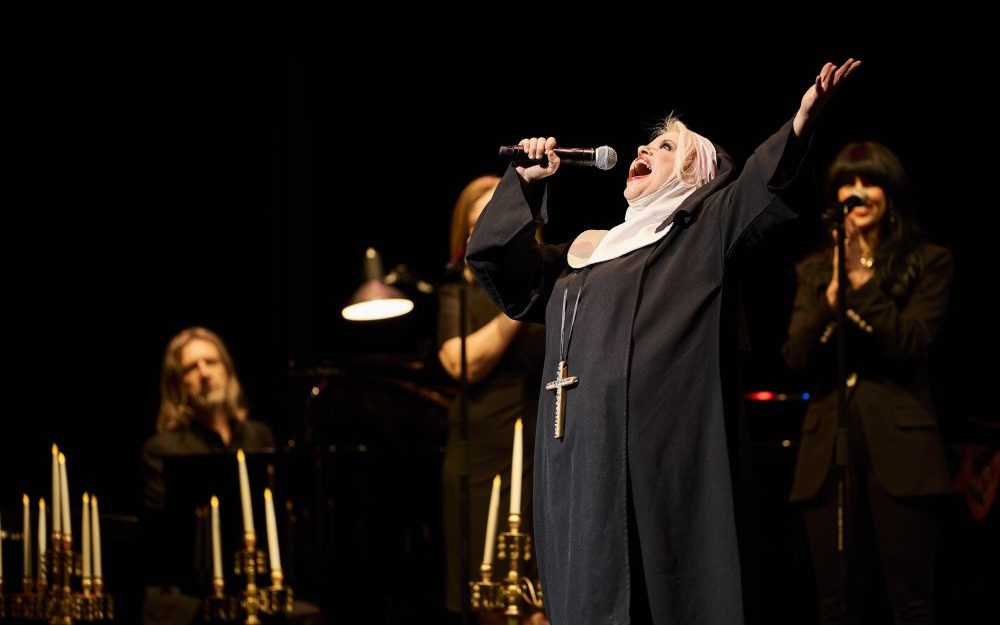Libby O’Donovan launches on to Her Majesty’s Theatre’s stage with a fun nun-inspired cabaret that encourages the whole audience to a singalong between interludes discussing nun life and popular culture. The performance is a joy the whole way and leaves no one behind, even if you only have a basic popular culture knowledge of nuns. The performance only loses its traction at the end, where none of the loose ends from O’Donovan’s personal story are tied up and the music seemingly just runs out, leaving behind the question: is that it?
O’Donovan begins the night by establishing her connection to nuns – growing up in a Catholic family and how she became Sister Elizbeth after writing ‘Saint’ as her title on an Australian Taxation Office form. This initial story sets her up as not only singer but a comedic talent who has perfected her timing and ability to laugh at herself. At one point, she pokes fun at herself for choosing photos from her childhood where she is looking great but her sister isn’t.
The personal story drifts into popular culture through O’Donovan explaining her youthful ambition to become a nun and the nuns that she could be. She uses nun history to explore the top nuns and then goes on to top types of nuns from movies. From here, O’Donovan’s connection to nuns thins and the focus becomes more on the songs. While, the show still propels enjoyably forward through various songs, there’s no shape to close the show in a satisfying way because there’s no revelation out of O’Donovan’s experiences.
The show carefully balances obscure religious songs with more well-known material for the audience to sing along with, like The Sound of Music. It provides opportunity for the audience to relax into the show and engage with the listening experience that’s offered by O’Donovan, her back-up singers and the Yankalilla Miracles choir.
While O’Donovan’s voice is a delight the whole way through, she shares the stages with her fellow singers as well, offering them solo opportunities and harmonising with them. This approach creates a sense of the show being for everyone and so when the audience is asked to add a cued yodel, or just join in, everyone is comfortable to do so. The music is upbeat and full of high energy the whole way through, only the encore song slightly calms the tone of the night. This keeps the performance completely captivating but also creates a hard stop when show ends because the energy levels are not plateaued into a comfortable finale.
The set is simple and charmingly reminiscent of a church – gold candle holders scattered around the stage, a large projector screen at the back that shows a leadlight window. It immediately sets to the tone of the production being a more fun version of your local church. This feel is further enhanced by the lighting choices that are equally simple. As O’Donovan starts a new idea, like exploring types of nuns, or when a new song begins, the lights on the side and back of the stage change colour. The colour shifts are bold often using blues and reds, and behaving like flashing disco lights. It’s a simple approach, executed smoothly and effectively.
Read: Theatre review: Cyrano
Libby O’Donovan – Sister Elizabeth is a thoroughly enjoyable night through nun pop culture, even with its missteps in storytelling and song structure. O’Donovan keeps the laughter rolling between songs with her taunt timing, and creates a sense that this show is for everyone through her ability to share the spotlight.
Libby O’Donovan – Sister Elizabeth was performed for one night only on 30 September at the Adelaide Festival Centre





